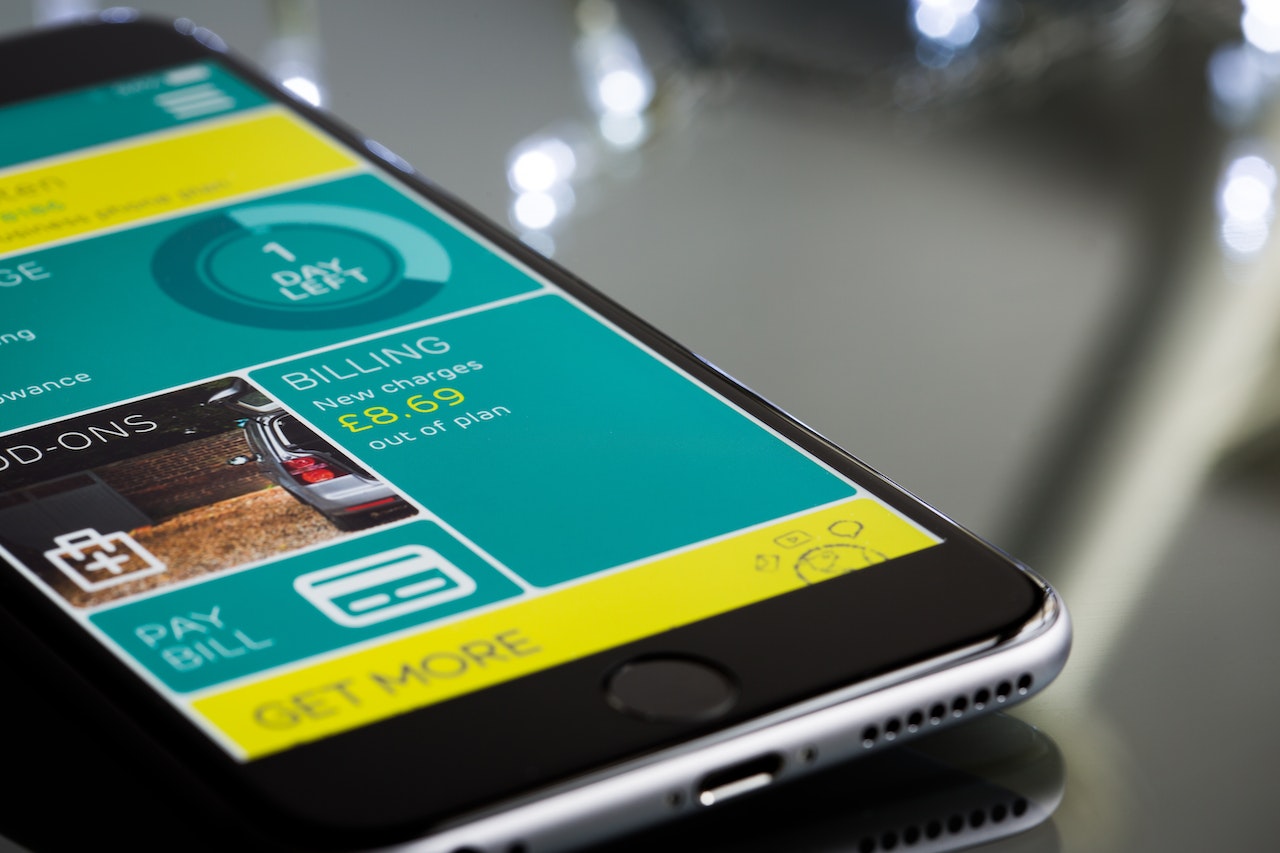Mobile app development has come a long way since the introduction of the first smartphone. Today, there are millions of apps available for download on various app stores, catering to a wide range of needs and preferences. As we approach 2025, it is important for developers to stay up-to-date with the latest trends in mobile app development to ensure that their products remain competitive in an increasingly crowded market. In this article, we will take a look at some of the key mobile app development trends that are likely to shape the industry in the coming year.

Table of Contents:
1. What mobile app trends await us in 2025.
1.1. Artificial intelligence and Machine Learning.
1.2. The Internet of Things (IoT).
1.3. Augmented Reality and Virtual Reality.
1.5. Cross-platform development.
2. Is it worth investing in mobile app development in 2025?
3. Railwaymen as a partner in mobile app development.
What mobile app trends await us in 2025
It's difficult to predict specific mobile app development trends for 2025 with certainty, as the field is constantly evolving and new technologies and techniques are being developed. However, there are a few trends that are likely to continue to be important in the coming years:
Artificial intelligence and Machine Learning
Artificial Intelligence (AI) and Machine Learning (ML) are two closely related technologies that involve the use of computer algorithms and systems to mimic human intelligence and learning. AI refers to the ability of computers to perform tasks that normally require human-like intelligence, such as decision making and problem solving. Machine Learning is a subset of Artificial Intelligence that involves the use of algorithms to analyze and learn from data, allowing computers to improve their performance over time without explicit programming. These technologies are being applied in a variety of fields, including healthcare, finance, and transportation, to improve efficiency and make tasks more convenient for humans. Artificial Intelligence and Machine Learning are also being used to develop new products and services, such as virtual assistants and self-driving cars.
The Internet of Things (IoT)
The Internet of Things (IoT) is a network of devices, objects, and sensors that are connected to the internet and can communicate with each other and with people. These devices can range from smartphones and laptops to home appliances and industrial equipment. The IoT allows for the collection and exchange of data between these devices, enabling them to interact with each other and perform tasks without human intervention. The Internet of Things has the potential to transform many industries, including healthcare, transportation, and agriculture, by automating processes and improving efficiency. However, the widespread adoption of the Internet of Things also raises concerns about data privacy and security.

Augmented Reality and Virtual Reality
Augmented Reality (AR) and Virtual Reality (VR) are technologies that allow users to experience and interact with digital content in a way that enhances or replaces their physical environment. AR involves the overlay of digital information and media on the real world, using devices such as smartphones and tablets. VR, on the other hand, involves the creation of a completely immersive digital environment that users can interact with using specialized equipment such as VR headsets. Both Augmented Reality and Virtual Reality have a wide range of applications, including gaming, education, and training, and are expected to play a significant role in the future of entertainment and marketing. However, the development and adoption of these technologies are still in the early stages, and there are challenges to overcome in terms of cost, accessibility, and user experience.
Blockchain
Blockchain is a decentralized, digital ledger that records transactions on multiple computers in a network. These transactions can be anything of value, such as money, goods, or information. The ledger is secured using cryptography, and each transaction is recorded as a block that is linked to the previous one, forming a chain of blocks. The decentralization of the ledger means that it is not controlled by a single entity, making it resistant to tampering and fraud. Blockchain has the potential to revolutionize a wide range of industries, including finance, supply chain management, and voting systems, by providing a secure and transparent way to record and track transactions.

Cross-platform development
Cross-platform development has become a popular trend in mobile app development in recent years, due to the increasing number of devices and platforms available on the market. With the proliferation of smartphones, tablets, and other mobile devices, it has become increasingly challenging for developers to create native apps for each platform. This is where cross-platform development comes in, as it allows developers to build apps that can be used on multiple platforms using a single codebase.
One of the main advantages of cross-platform development is that it allows developers to reach a wider audience, as their apps can be used on a variety of devices. This can be especially useful for small businesses and startups that may not have the resources to create native apps for each platform. Cross-platform development can also reduce development time and cost, as developers only need to create one version of the app instead of multiple versions for different platforms.
Security
Security is a critical concern in the mobile app development industry, as mobile devices are increasingly being used to access sensitive information and perform important tasks. As a result, developers must take steps to ensure that their apps are secure and protect users' data from potential threats such as hackers, malware, and identity theft.
One of the key trends in mobile app development is the increasing focus on security. This includes the use of secure coding practices, such as using encryption to protect data and implementing authentication measures to verify users' identities. Developers are also using a variety of tools and techniques to test and validate the security of their apps, including penetration testing and vulnerability assessments.

Personalization
Personalization will be a key trend because it allows developers to create tailored and customized experiences for their users. This can be achieved through the use of data and analytics to understand users' needs, preferences, and behaviors, and to deliver personalized content and recommendations based on this information.
Personalization can take many forms, such as recommending products or services based on users' past purchases or search history, or customizing the layout and content of an app based on users' location or language preferences. There are several benefits to personalization in mobile app development. For users, it can provide a more relevant and enjoyable experience, as they are presented with content and recommendations that are tailored to their interests and needs. For developers, personalization can lead to increased engagement and retention, as users are more likely to continue using an app that provides value and meets their needs.
Is it worth investing in mobile app development in 2025?
Investing in mobile app development can be a valuable decision for businesses and organizations that want to reach and engage with their customers and users through mobile devices. With the widespread adoption of smartphones and tablets, mobile apps have become an important channel for communication, entertainment, and commerce.
Mobile apps allow businesses to reach and engage with their customers and users in a convenient and personalized way. This can be especially useful for reaching younger and tech-savvy audiences. They can provide a seamless and convenient experience for customers, allowing them to access products and services on the go. This has the effect of increasing satisfaction and loyalty. Mobile apps are also an important source of revenue for companies, through product and service sales, in-app purchases or advertising. A well-designed and functional app can enhance a company's brand image and reputation, as it demonstrates a commitment to meeting customer needs and expectations.

Railwaymen as a partner in mobile app development
Railwaymen is an experienced mobile app development partner. Our company has been providing customers with top quality solutions to support their business for many years. There are more than 150 web & mobile apps in our portfolio for companies from different corners of the world. We encourage you to visit our Case Study tab, where we described the detailed course of our past projects. Perhaps one of them will prove to be an inspiration for you and your company for Mobile App Development in the coming year.


%20(1).jpg)



